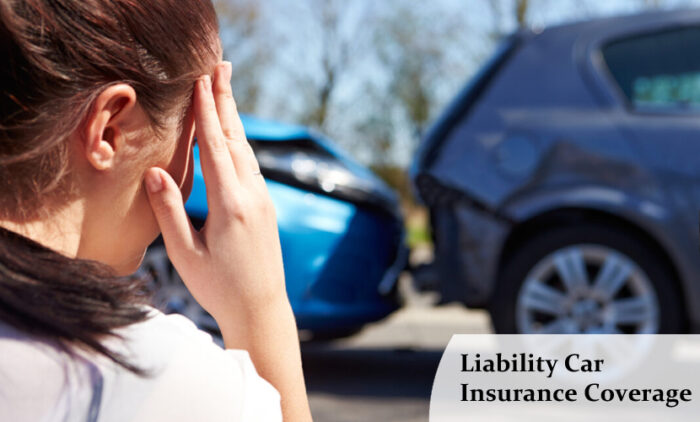Driving gives us freedom, but it comes with responsibilities too. One essential part of making sure we’re responsible drivers is having “Liability Car Insurance Coverage.”

It’s not just a rule in many places; it’s like a safety net that can help us when unexpected things happen on the road.
For instance, if there’s an accident, your liability car insurance covers damages and injuries you must have caused others while driving.
In this article, we will explore what liability car insurance is all about, why it’s important, and how it keeps us and others protected while driving. Keep reading through to be enlightened.
What Is Liability Car Insurance?
Liability car insurance is a specific type of auto insurance coverage that provides financial protection if you are at fault in a car accident and cause injuries to others or damage their property.
It’s a fundamental component of auto insurance and is typically required by law in most places.
How It Works
Liability car insurance operates by providing financial protection when you are responsible for causing injuries or property damage in a car accident.
It consists of two main parts: bodily injury liability, covering medical expenses and legal fees for those injured, and property damage liability, addressing repair or replacement costs for damaged property.
If you cause an accident, your liability insurance covers the costs for the affected parties, up to specified limits.
These limits are usually expressed as three numbers denoting coverage for bodily injury per person, bodily injury per accident, and property damage.
However, note that liability insurance doesn’t cover your own injuries or vehicle damage.
But it offers legal and financial safeguards, making it a fundamental requirement for responsible driving and often a legal necessity.
What Does Liability Car Insurance Cover?
As earlier stated, liability car insurance covers the costs associated with injuries to others and damage to their property if you are at fault in a car accident. However, it typically includes two main parts, which are:
Bodily Injury Liability
It covers medical expenses, rehabilitation costs, and legal fees for individuals injured or killed in an accident where you are found responsible.
Property Damage Liability
This covers the cost of repairing or replacing another person’s property, such as their vehicle or other structures, if you cause damage in an accident.
What It Does Not Cover
Liability car insurance does not cover certain expenses or damages. They include:
Liability car insurance does not cover certain expenses or damages. Here are key aspects that are typically not covered by liability insurance:
Your Injuries
Liability insurance does not pay for your medical expenses if you are injured in an accident. So, to cover your injuries, you would need personal injury protection (PIP) or medical payment coverage.
Your Vehicle’s Damage
If your car is damaged in an accident where you are at fault, liability insurance does not cover the cost of repairing or replacing your vehicle.
Collision insurance is the coverage that addresses your vehicle damage.
Comprehensive Damages
This type of insurance does not also cover damages to your vehicle caused by events other than collisions, such as theft, vandalism, or natural disasters.
Comprehensive insurance is needed for such incidents.
Uninsured Or Underinsured Motorists
If you are in an accident caused by a driver without insurance or with insufficient coverage, liability insurance may not cover your injuries or damages.
Uninsured or underinsured motorist coverage is a separate option for such situations.
Non-Collision Events
Liability insurance is primarily designed for coverage in accidents where you are at fault.
It does not cover non-collision events like hail damage, flooding, or hitting an animal. Comprehensive insurance is best for these scenarios.
How Much Does Car Liability Insurance Cost?
On average, drivers pay around $635 annually, or approximately $53 monthly, for the minimum auto liability insurance.
Conversely, opting for full coverage can be more expensive, with an average cost of $1,730 per year, around $144 per month.
Factors that Affect the Cost of Liability Car Insurance
Several factors contribute to the cost of this insurance, and they are outlined below:
- Marital status
- Credit history
- Gender as listed on a driver’s license
- Driving record
- Age
- Location
- Vehicle type and age
These factors collectively influence the amount you will pay for your policy.
Companies That Offer Liability Car Insurance Coverage
Many insurance companies offer liability car insurance coverage. The availability of these companies can vary based on your location and other factors.
Here are some well-known insurance companies that commonly provide liability car insurance coverage:
- GEICO.
- State Farm.
- Progressive.
- Allstate.
- USAA (for military personnel and their families).
- Farmers Insurance.
- Nationwide.
- Liberty Mutual.
- Esurance (a subsidiary of Allstate).
- The Hartford.
However, it’s important to note that the availability and specific coverage options can vary by state and region.
Also, there are often smaller or regional insurers that may offer liability coverage.
Therefore, when shopping for insurance, you should obtain quotes from multiple companies to compare coverage options and rates.



